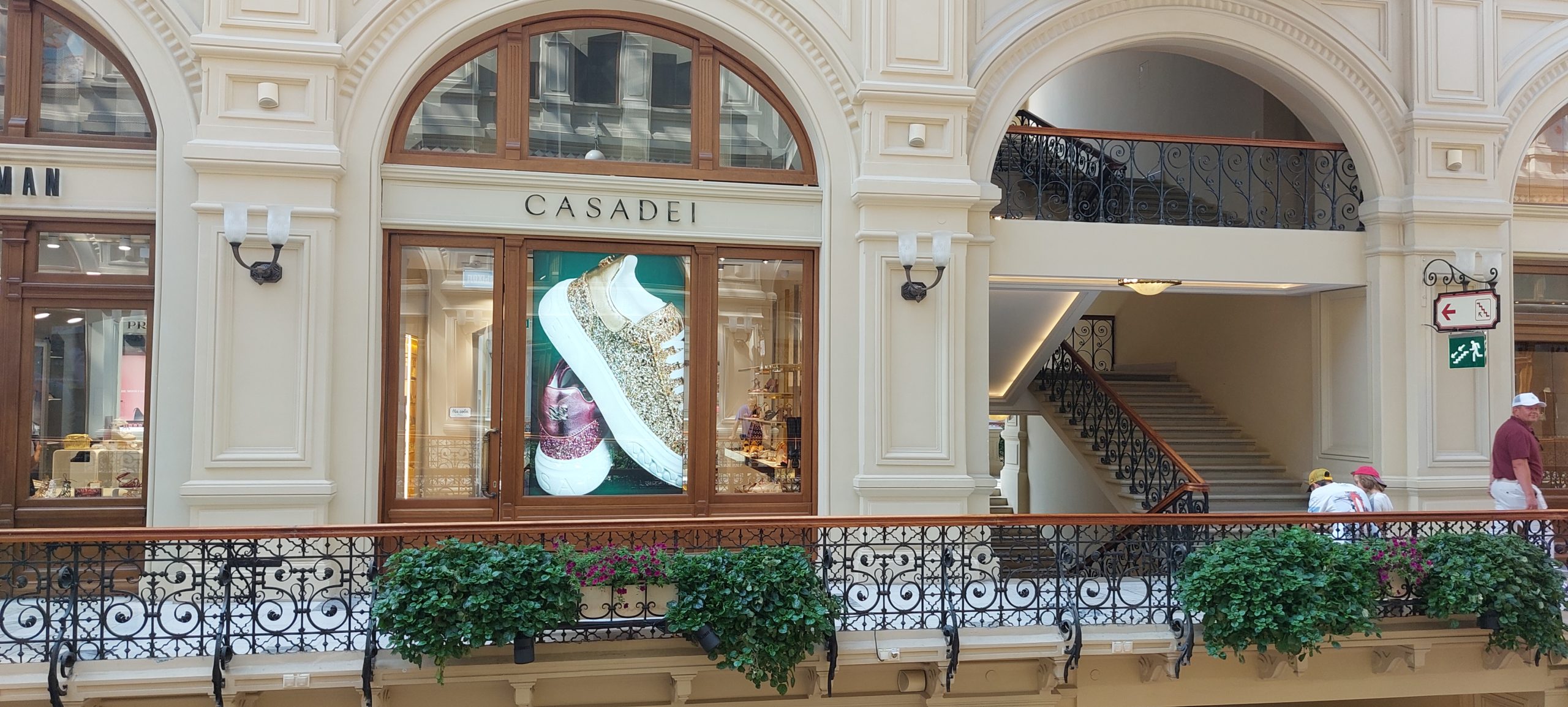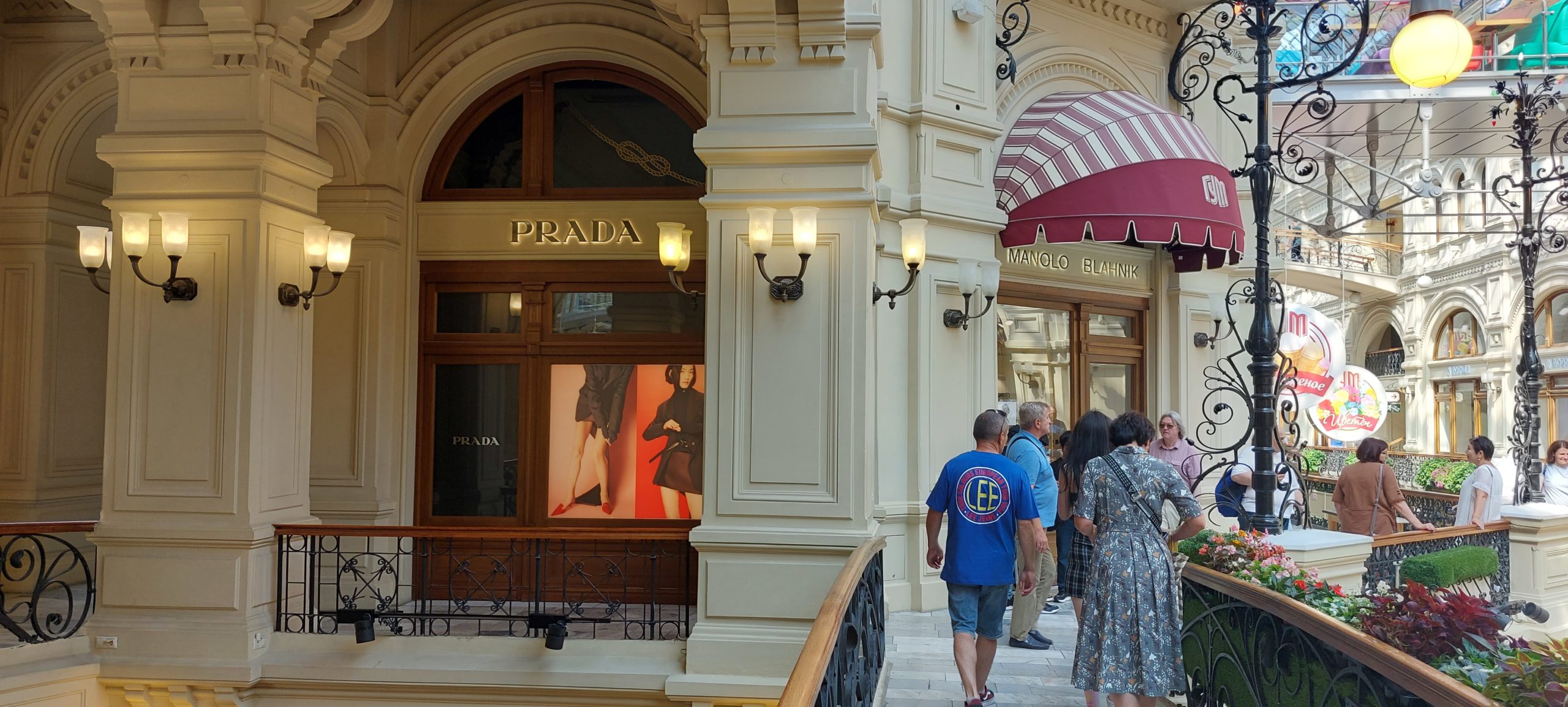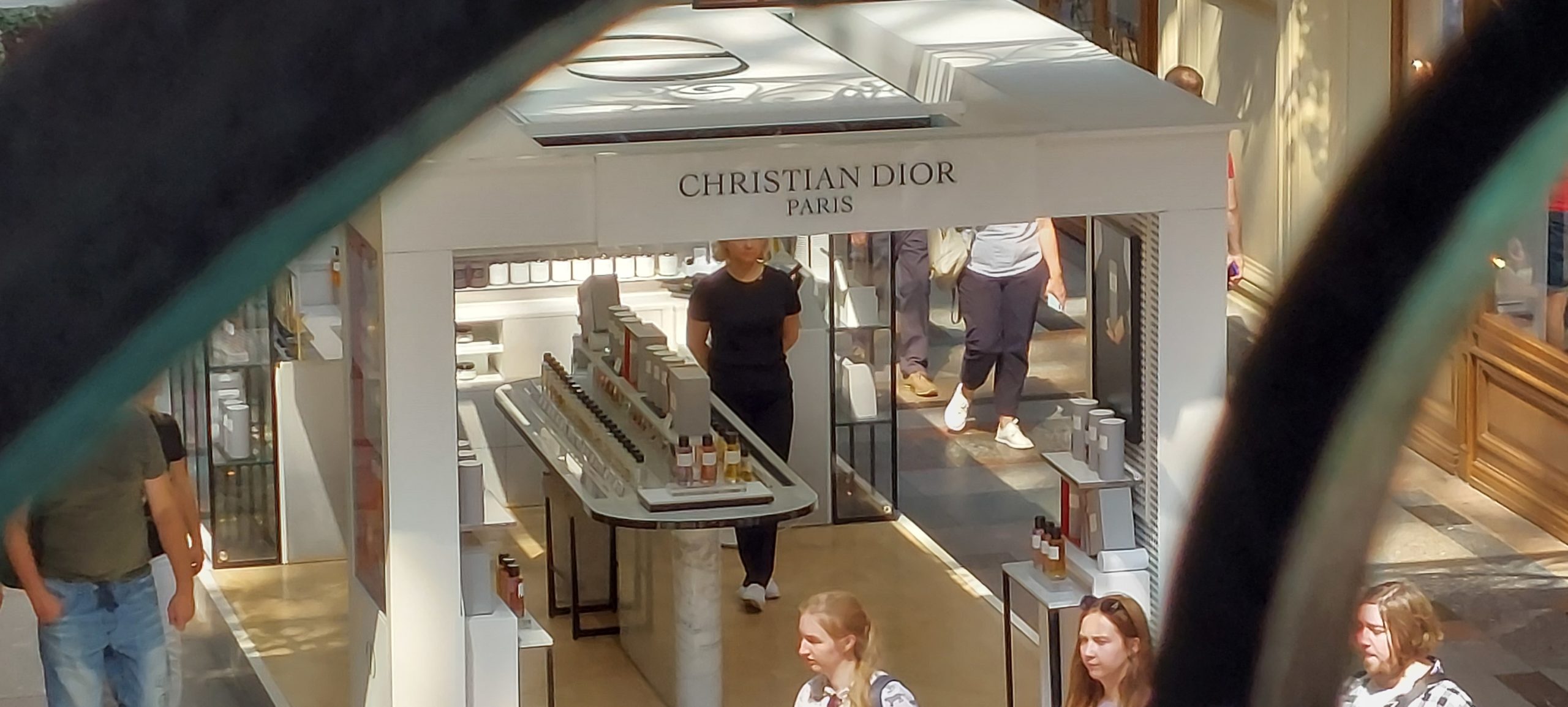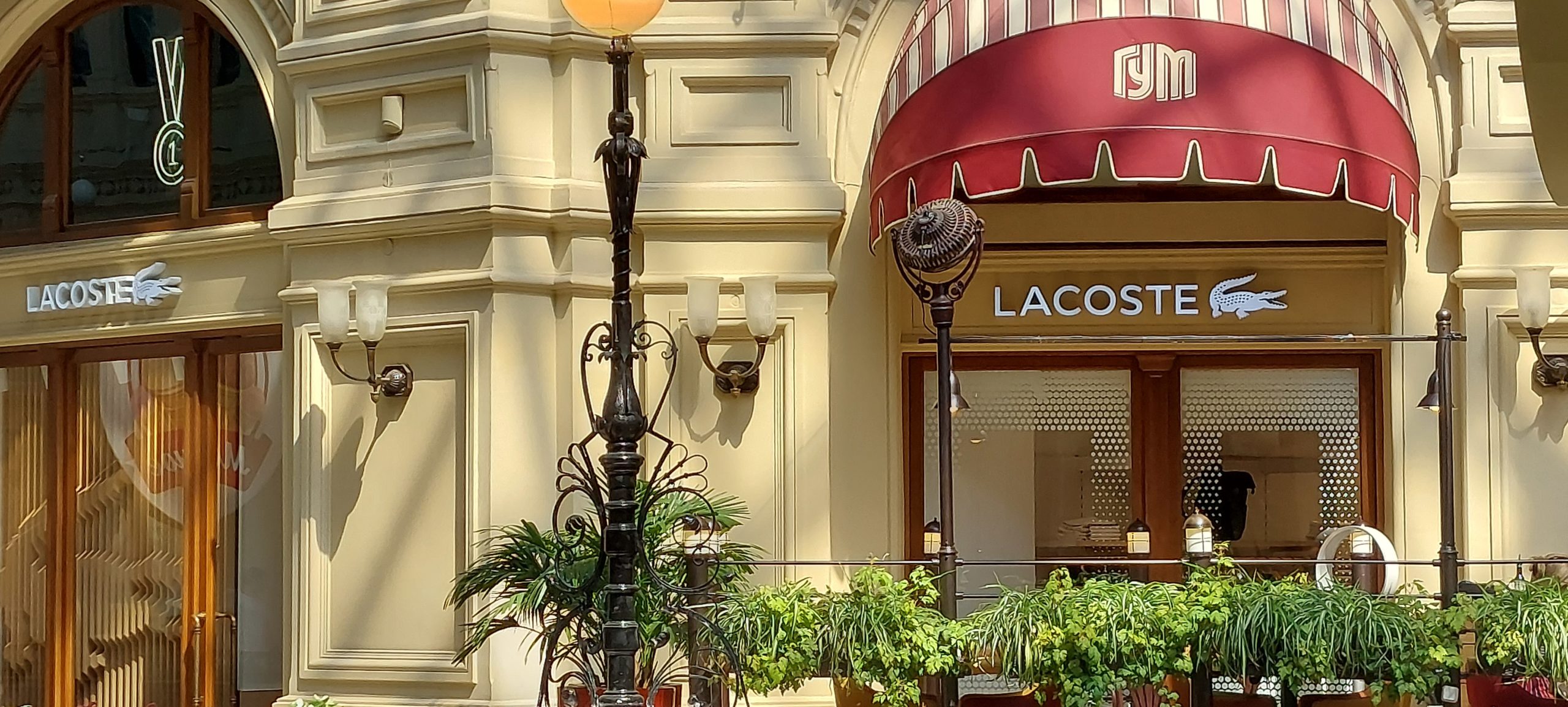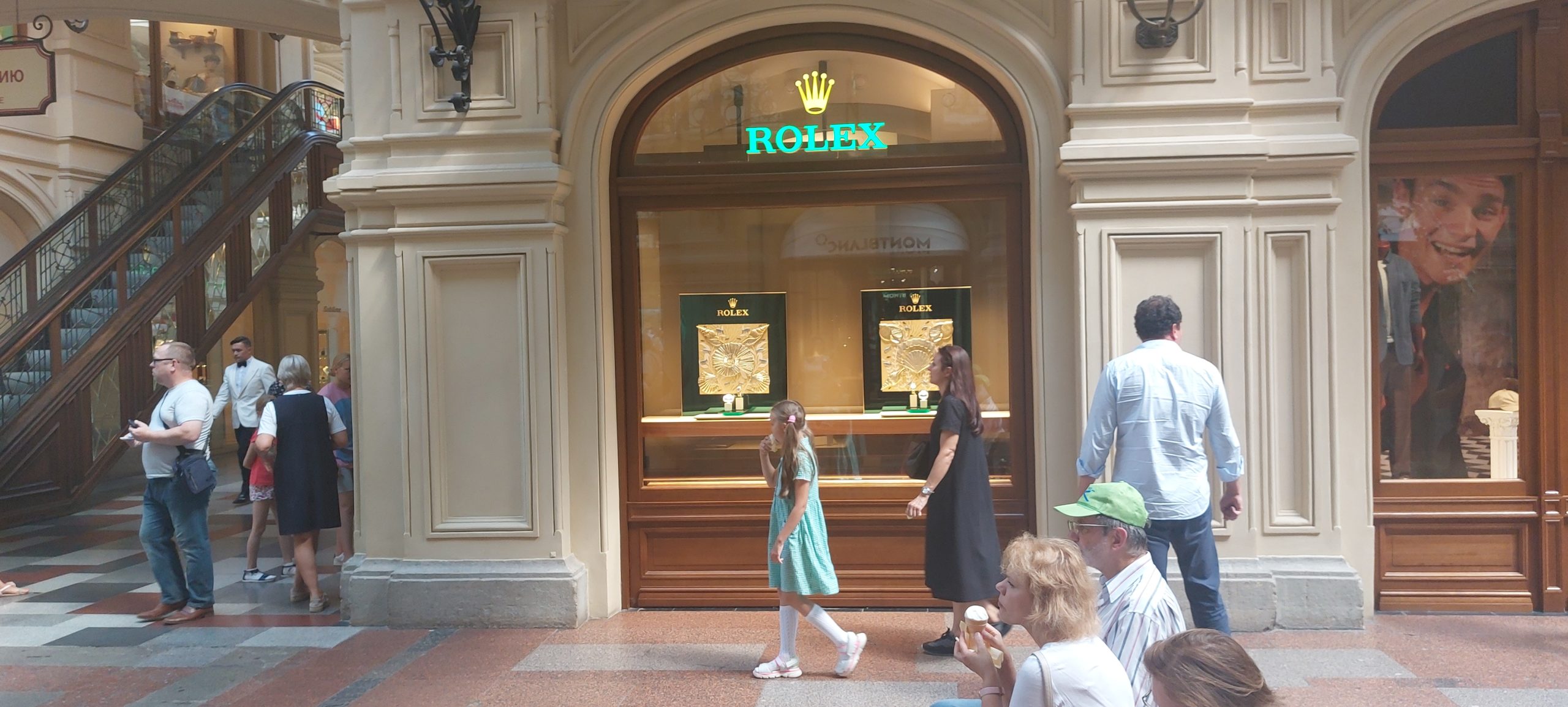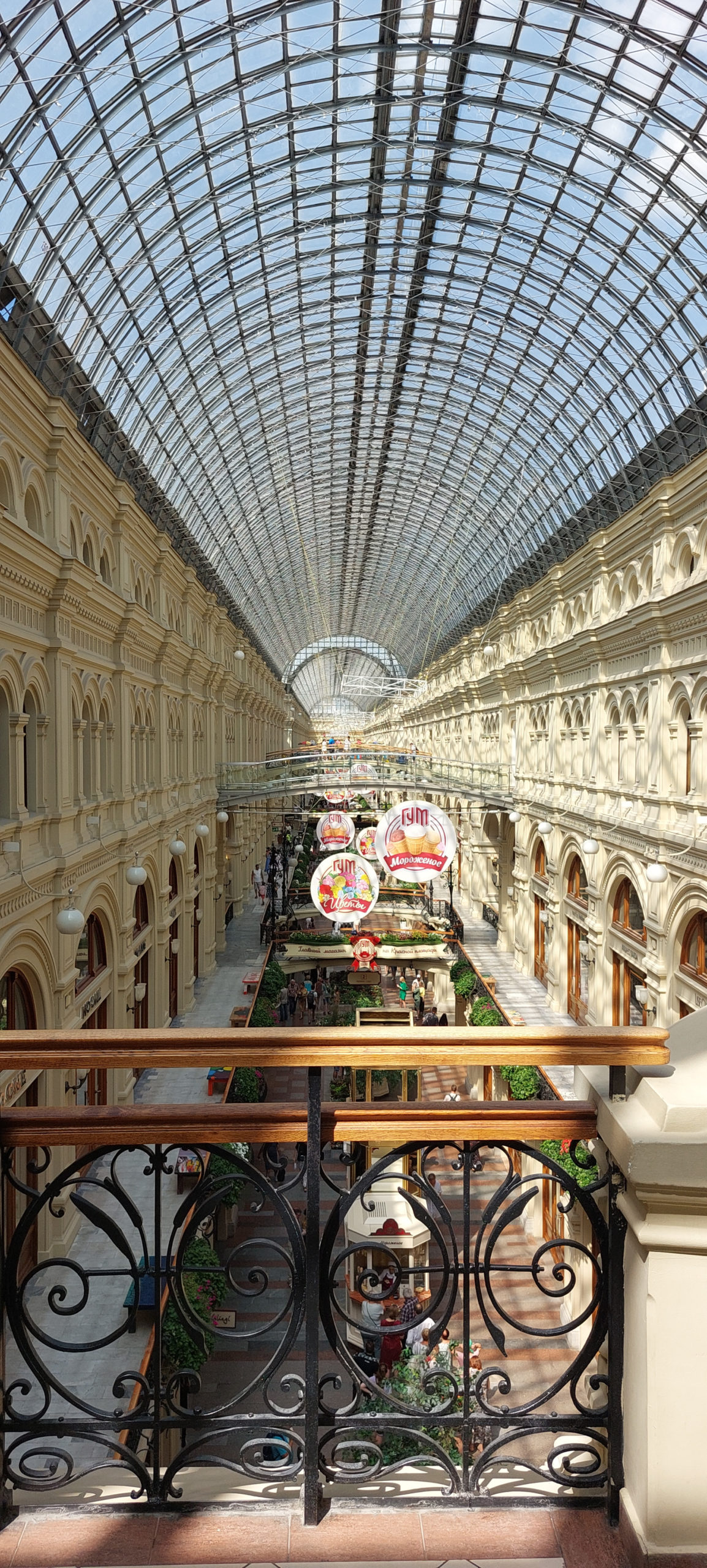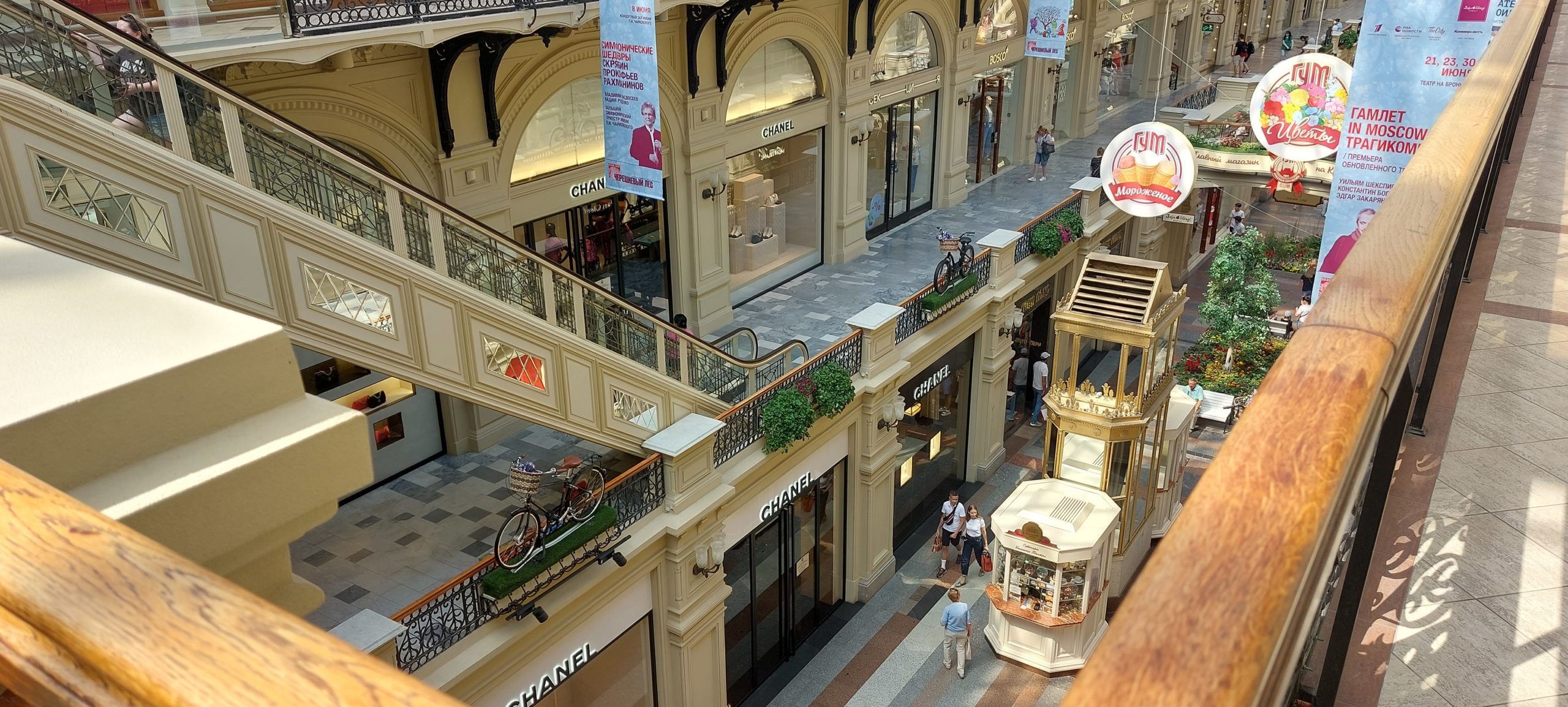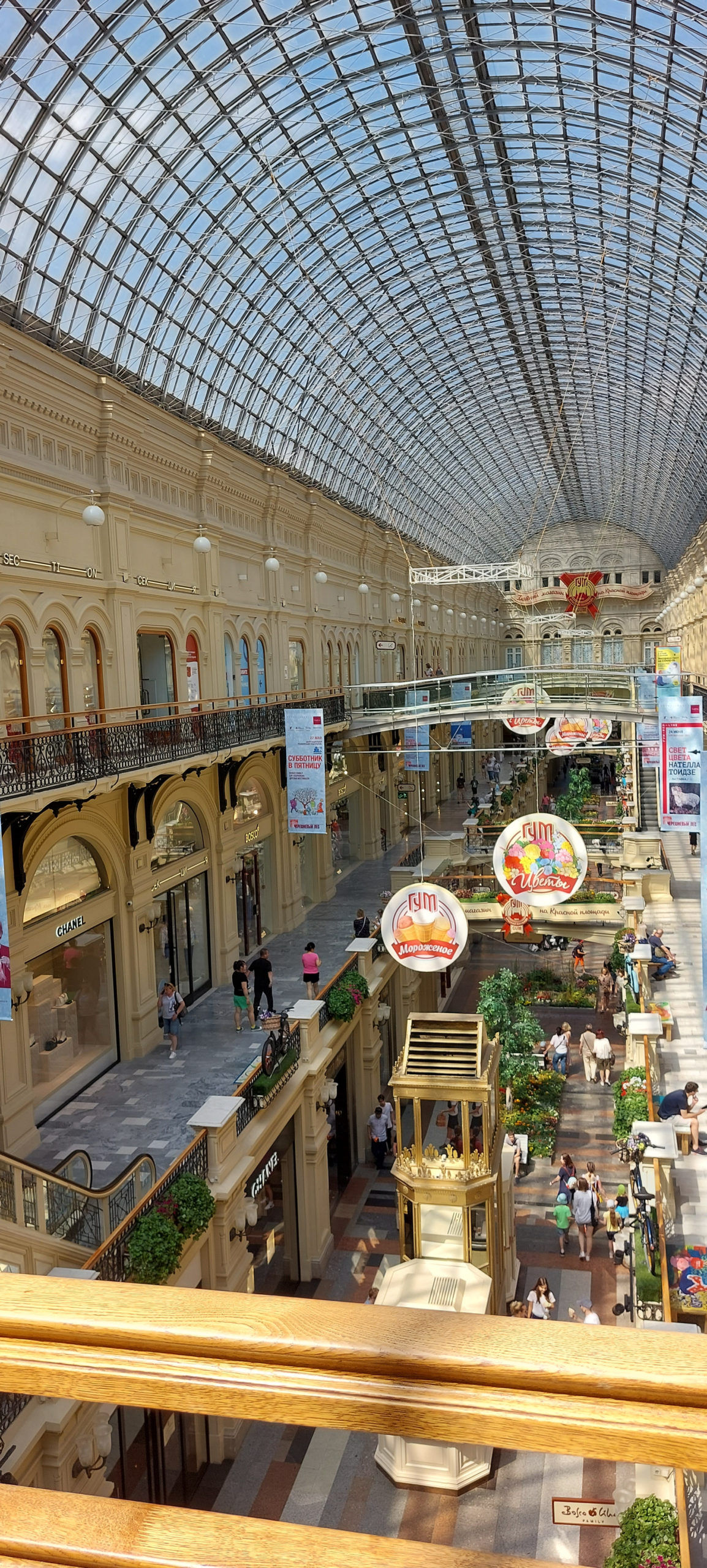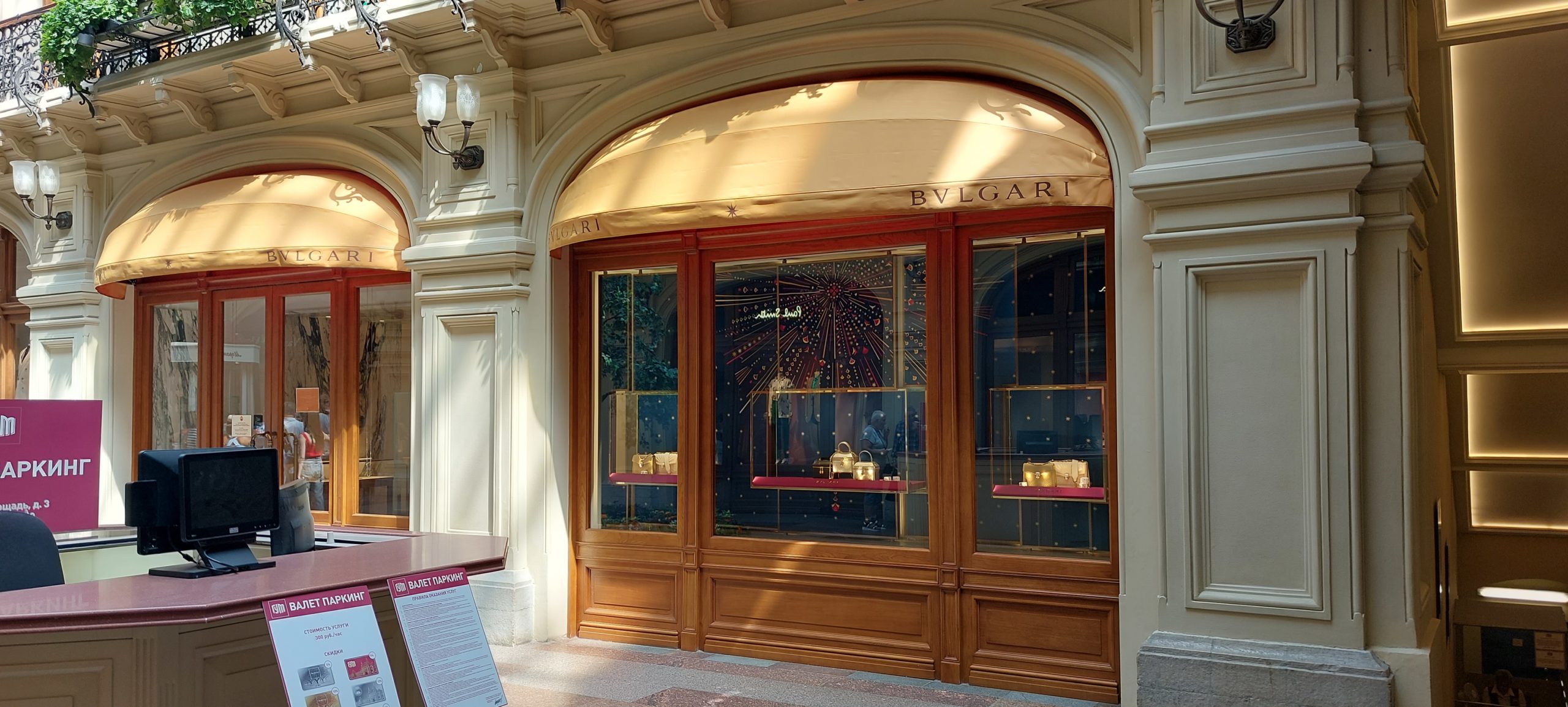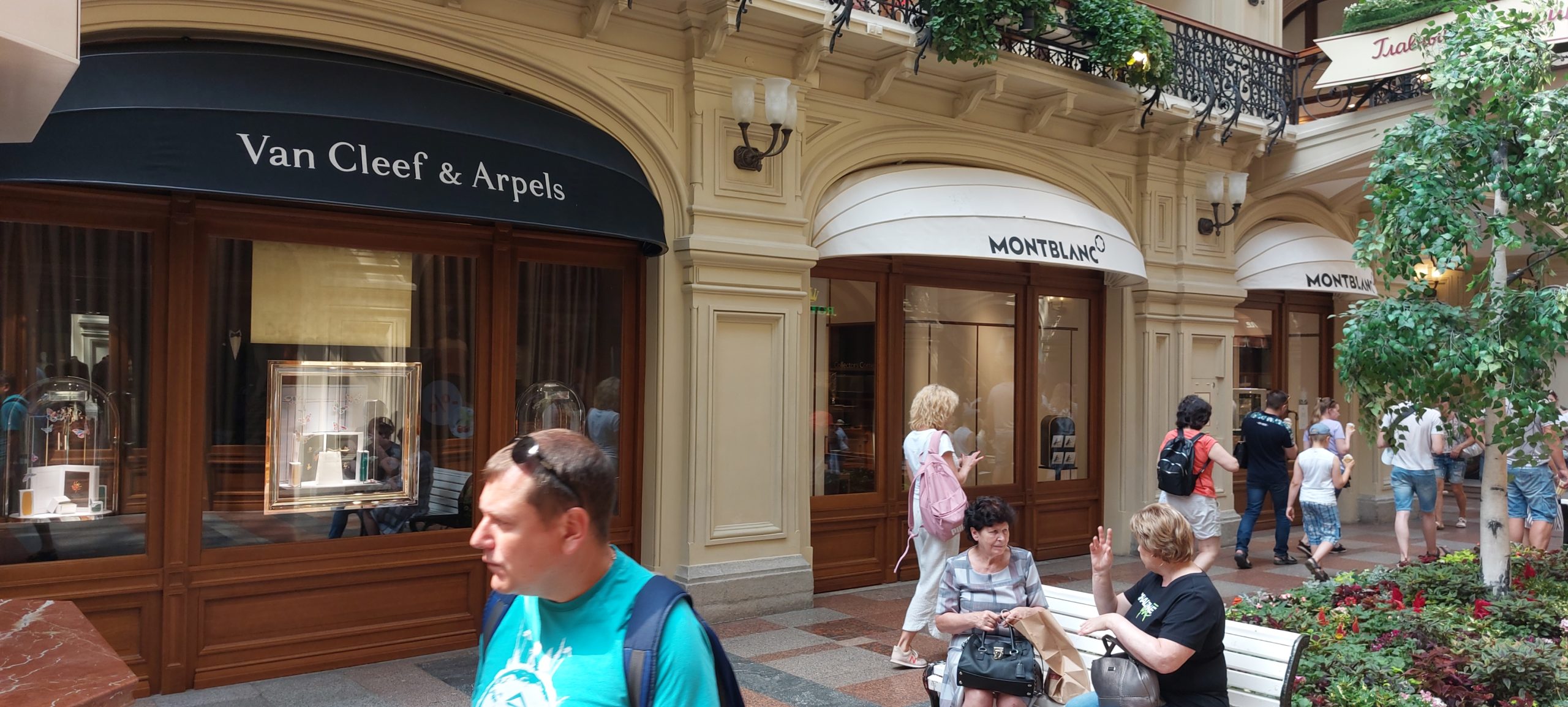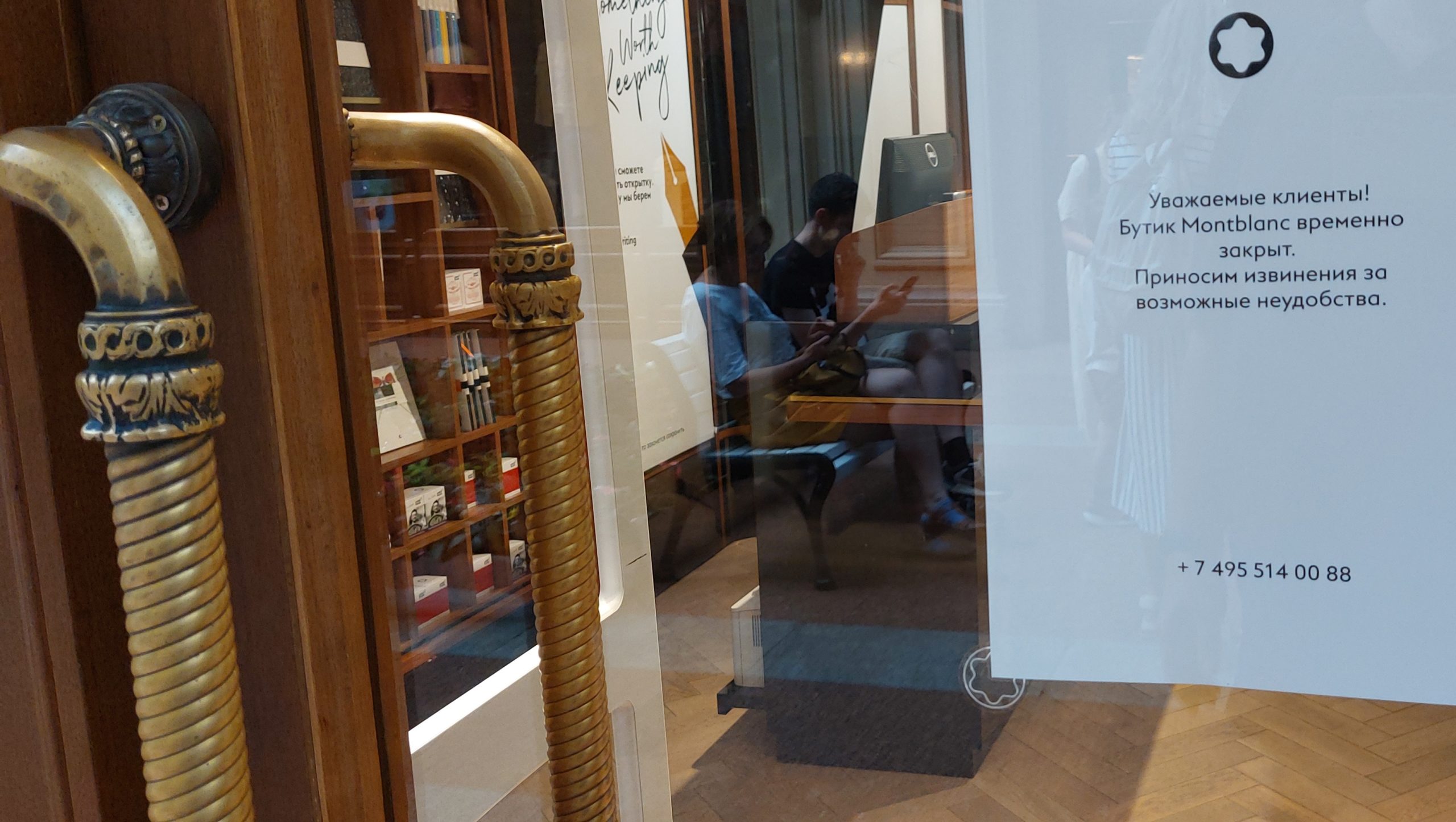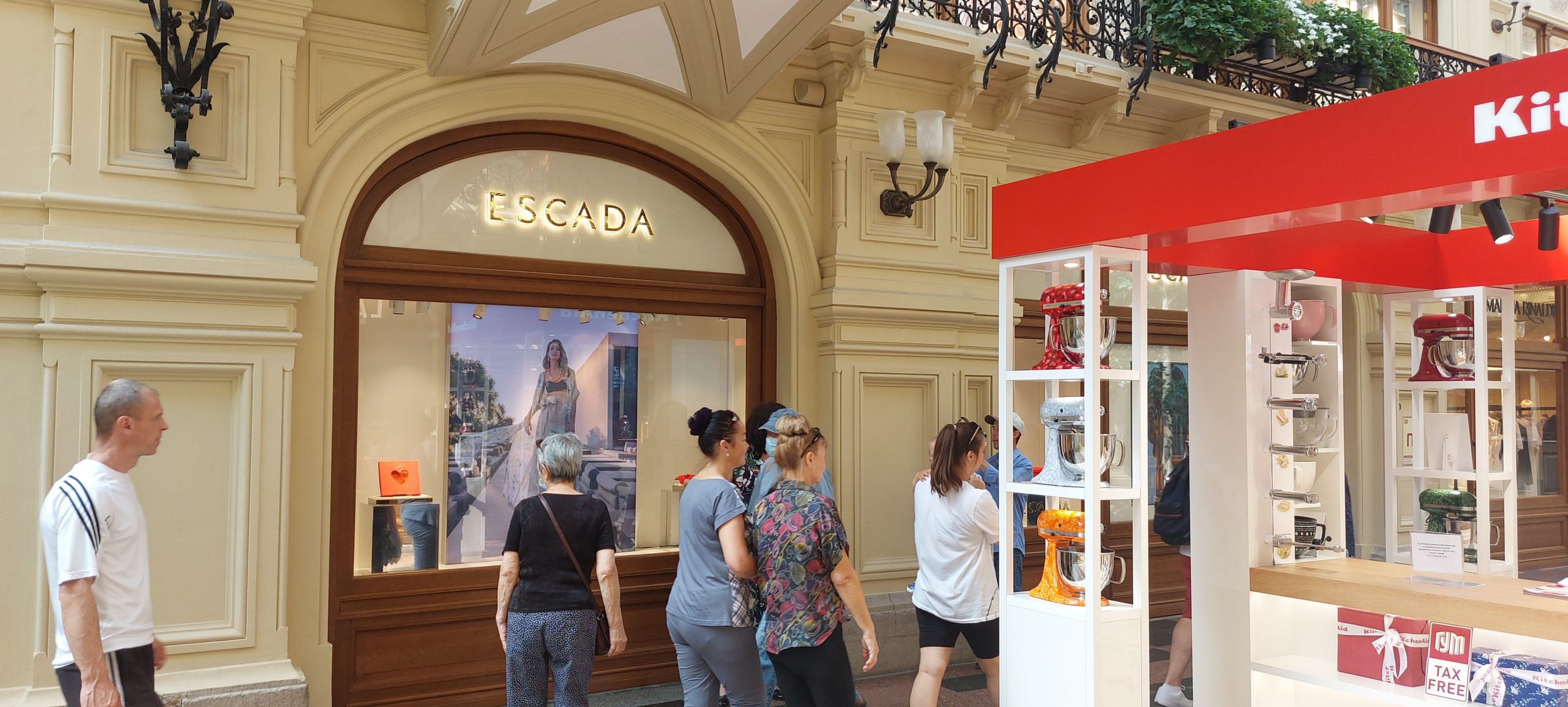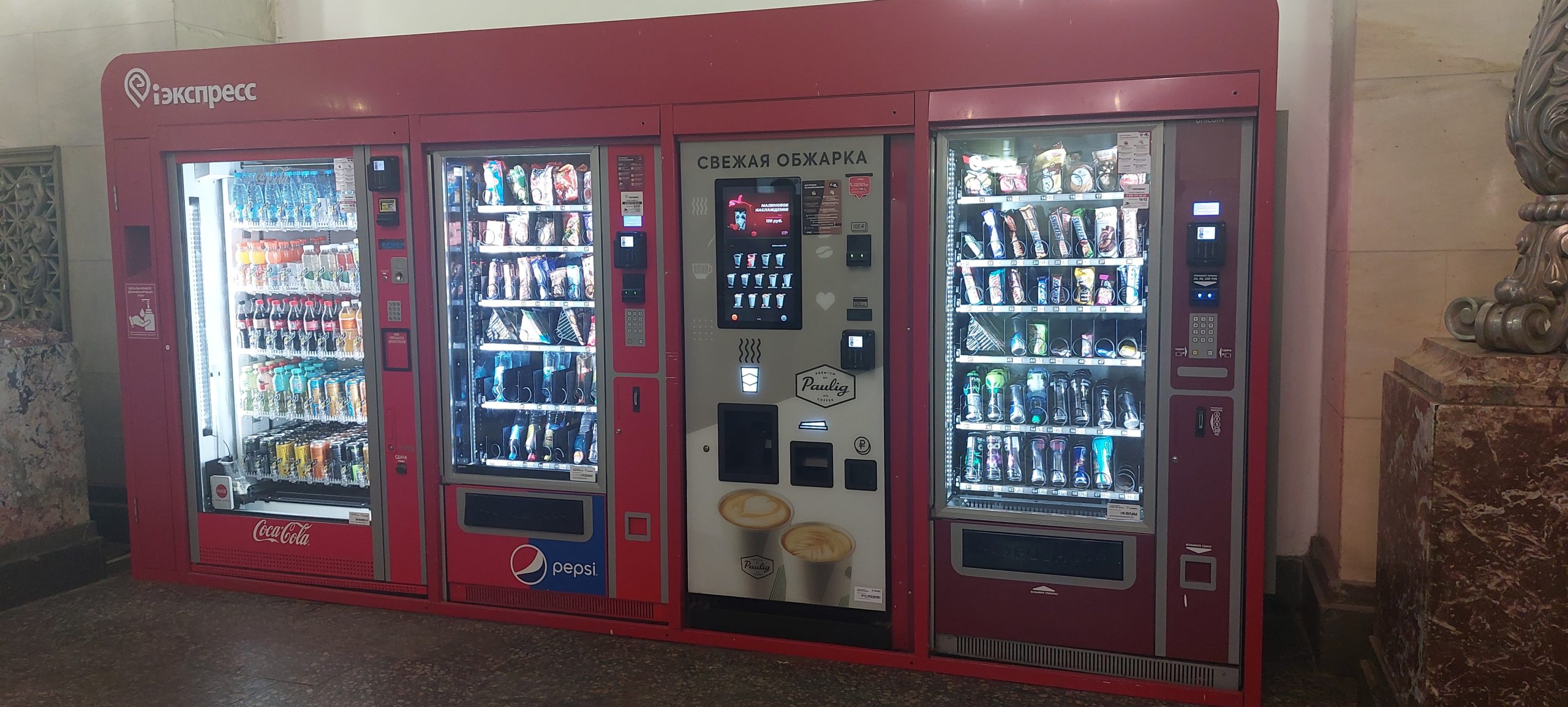
Exclusive: Who do sanctions really hit? – video
Sanctions are becoming all the more painful for Europe while Russians are unfazed and doing well. Some people even suggest relocating to Russia to ensure having heating in winter. V4NA gathered some first-hand experience about the impact of the punitive measures on Russia.
In recent days, there has been ever growing criticism of Western sanctions that were imposed on Russia as some sort of secret weapon. The punitive measures are causing more damage to the world than to the country that they are aimed at, Gertrud Traud, a senior economist at Landesbank, pointed out. The measures against Russia are not working as they only hurt the peoples of Europe, Marine Le Pen said a few days later.
Here are some facts first. Below is a comparison of Russia and the two major European powers regarding territory and population.
| Russia | Germany | France | |
| Territory | 17 100 000 km² | 357 588 km² | 643 801 km² |
| Population | 144,1 million | 83,24 million | 67,39 million |
How do sanctions work in Russia?
The West imposed the sanctions starting out from its own vantage point, without taking into account the conditions in Russia. At least this is what anyone would assume when travelling to Russia to see how effectively the sanctions are working. We had no preconceptions when travelling there other than the belief that the punitive measures had indeed been introduced and that they were working. However, in general, it can be said that the sanctions are barely palpable in Russian society apart from some small unpleasantries in everyday life. Illustrative of Western civilisation was the conviction that the spectacular exit of McDonald’s would bring Russia to its knees. The plan miscarried.
Companies pulling out of Russia adopted different strategies. Barely a few firms followed suit with McDonald’s, with the majority opting for a temporary solution. The US fast food chain decided to discontinue all activities in Russia for good, leaving the country without delay. However, the Americans’ secret weapon misfired. Before long, Russians turned out to be potential world leaders in copying know-how on par with the Chinese. Russian customers noticed no difference in quality after the McDonald’s food production and distribution network had been taken over by Vkusno i Tochka – meaning „Tasty and that’s it” – to replace McDonald’s in Russia. As a sidenote, some of the restaurants temporarily stopped serving fries as harvest was poor. Only someone with a high BMI comfortably addicted to American fast food could have believed that losing a low-standard restaurant chain would deliver a severe blow to Russians, who still had recollections of using ration cards to buy foodstuffs thirty years ago. Only someone unfamiliar with food scarcity and rationing, who has never experienced using tickets to buy milk one day, bread the next, meat the third day, could believe that this would have worked.
Another category of companies pulled out of Russia without actually leaving the country. There are two ways to do this, with fashion brands excellently adopting one of the methods. They remained in Russia but claim that their items are unavailable. Allegedly. There are several ways to get that coveted branded bag or fashion item. Some Russian sources say, it only takes one phone call and it will be delivered to your door. As this is difficult to verify from a hotel room, we’ll take it as hearsay. Another way is for any Russian citizen to obtain those items by buying them in Istanbul, Dubai, Antalya or Serbia. Those who can afford them, can also afford a half-day trip. These companies have therefore stayed in the Russian market and are consolidating their positions. In the famous GUM shopping centre there are no vacancies in shops for rent, as all the international brands continue to hold their retail space.
- GUM shopping mall, Moscow, end of July 2022
- GUM shopping mall, Moscow, end of July 2022
- GUM shopping mall, Moscow, end of July 2022
- GUM shopping mall, Moscow, end of July 2022
- GUM shopping mall, Moscow, end of July 2022
- GUM shopping mall, Moscow, end of July 2022
- GUM shopping mall, Moscow, end of July 2022
- GUM shopping mall, Moscow, end of July 2022
- GUM shopping mall, Moscow, end of July 2022
- GUM shopping mall, Moscow, end of July 2022
- GUM shopping mall, Moscow, end of July 2022
- GUM shopping mall, Moscow, end of July 2022
- GUM shopping mall, Moscow, end of July 2022
- GUM shopping mall, Moscow, end of July 2022
There are some companies that have cautiously stayed put in the much-despised Russia. They hate it, but they still want to benefit from the purchasing power of a country where the number of the capital’s inhabitants alone equals twice the population of Slovakia. On the Russia1 television channel, you can come across the ads of the French company Auchan, alongside KFC and Burger King. Russia1 is the official government channel or, let’s put it this way, the public TV station. We have also seen the ad of the Czech beer brand Kozel on this channel.
And then comes the most blatant fake sanction of all time, the Coca-Cola model. Coca-Cola has announced twice that it is joining the sanctions, the second time they very seriously stated that it is really over, once the stocks run out there will be no more Coca-Cola. The Russian Foreign Ministry spokesperson only responded ironically by asking how the rusty nails would be cleaned in Russia in the future.
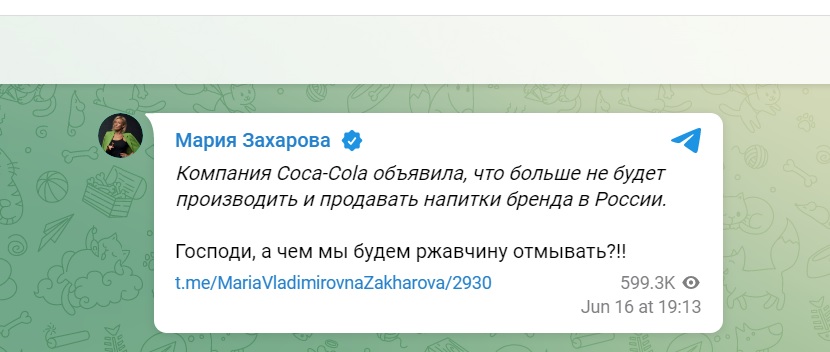
It is worth noting that in Moscow, a city of 12-13 million people, you could still buy Coca-Cola in early August, even at the metro entrance, and it was also available on the shelves of a small grocery store less than 50 km from Moscow.

So Coca-Cola left, but for the time being it still secured its place in the system. Obviously, it should have been somewhat suspicious that if a company announces twice that it’s really over each time, then something must be fishy.
On numerous occasions, several media outlets have reported that the shelves are empty in Russia. It may be prudent to not take this at face value either. The reality is that there are supply problems of some products, but the shortages are not particularly painful. You could say that the Russians didn’t even notice, or maybe just so much that they had to buy another brand instead of their favourite one.
Just two weeks ago, a Russian commercial was released on why it’s worth travelling or moving to Russia, and one of the attractions, apart from the pretty girls, is the intimation that Russia will have heating in winter. And this will presumably be the case. In summer, however, air-conditioned rooms can be a problem, because Russians tend to overdo it, and when the thermometer outside reads over 30°C, they cool even the smallest grocery shops down to 18°C.
Time to move to Russia 🤍💙❤️ pic.twitter.com/4CZL1Nt4Gi
— Rusia en España (@EmbajadaRusaES) July 29, 2022
While the Russians are barely feeling the impact of the sanctions, Europe has to tighten its belt. America has shot Europe in the foot by pushing the sanctions, while laughing behind the EU’s back.


